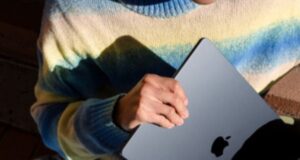Apple was able to convince a jury that Masimo had willfully infringed on its patents, but the verdict is not expected to affect Masimo in any way.
Some legal cases are less about seeking compensation while others are more about sending a message. Apple won a $250 patent case against Masimo over accusations of imitating its product design. To Apple’s credit, the company was not seeking monetary compensation for the case but wanted an acknowledgment from Masimo, confirming that it had intentionally copied its design with the W1 health-tracking smartwatch.
After a federal jury debated over the legitimacy of the claim, they concluded that Masimo had wilfully infringed on Apple Watch design patents and should be held accountable for it, however, their mixed verdict has not halted any sales.
Image: Masimo W1 Watch
Apple Wins a $250 Patent Case but It’s Main Battle with Masimo Continues
According to a detailed report by Bloomberg Law, the jury found that the original design for Masimo’s W1 Freedom and Health module were indeed copies of Apple’s products. The original charger Masimo sold also imitated Apple’s design. The iPhone company’s filing of the complaint stated that Masimo had “copied Apple while filing lawsuits to try to prevent sales of Apple Watch.”
As a result of this decision, the jury awarded Apple $250 in compensation for the damages, which is the statutory minimum that can be provided for such a filing. The small number is pocket change for Apple’s $3.5 trillion business, but Apple’s attorney explained that the ultimate purpose of registering the lawsuit was not for money but to convince Masimo to stop copying their product.
In a statement to Gizmodo, the Cupertino company explained that they were grateful to the jury for acknowledging that Masimo had “willfully infringed Apple’s patented designs.” The company further explained that the teams at Apple had worked for years to develop and perfect their design and Masimo had taken a shortcut to launch its own version of it to the market.
Despite the “win,” things have not changed considerably for Apple. The Apple smartwatch patent infringement verdict largely only accounts for Masimo’s older products, and not the ones they are currently putting out on the market. As a result, Mansion can continue to sell its smartwatches undeterred by the result of the verdict.
Masimo also considers this jury decision to be a win and it also expressed its appreciation to the jury for being “in favor of Masimo and against Apple on nearly all issues.” The module and charger accused of the infringement have already been discontinued, which means Masimo’s business will remain unaffected—other than having to pay the $250 that Apple won from the patent case and also pay the legal fees for the entire proceedings that likely cost them more than the fine.
The Apple vs Masimo Case Is a Part of a Bigger Story
Masimo is a global medical technology company with various patents on health-monitoring tech that can observe and alert users to physical changes that might require medical attention. Among these is the company’s patent on blood-oxygen monitoring technology.
Understandably protective of this tech, Masimo took Apple to court, accusing the company of duplicating its work without authorization. Masimo had previously filed and won a similar claim of patent infringement against True Wearables. With Apple as well, Masimo was able to convince authorities to enforce a ban on the Watch Series 9 and Watch Ultra 2 unless the devices were sold without the notorious SpO2 sensor.
Apple was able to appeal for a stay on the ban temporarily, but this was not enough to guarantee a permanent return of the smartwatches until the feature was removed. Apple had the option of licensing the technology from Masimo so it could continue to sell the watches with the feature, but it refused to succumb to the temptation. The two watches are available in the US once more, but they do not have the SpO2 sensor enabled.
Apple’s win in the $250 patent case with Masimo is a pebble in the larger arena where the two companies continue to battle over patent infringements.




